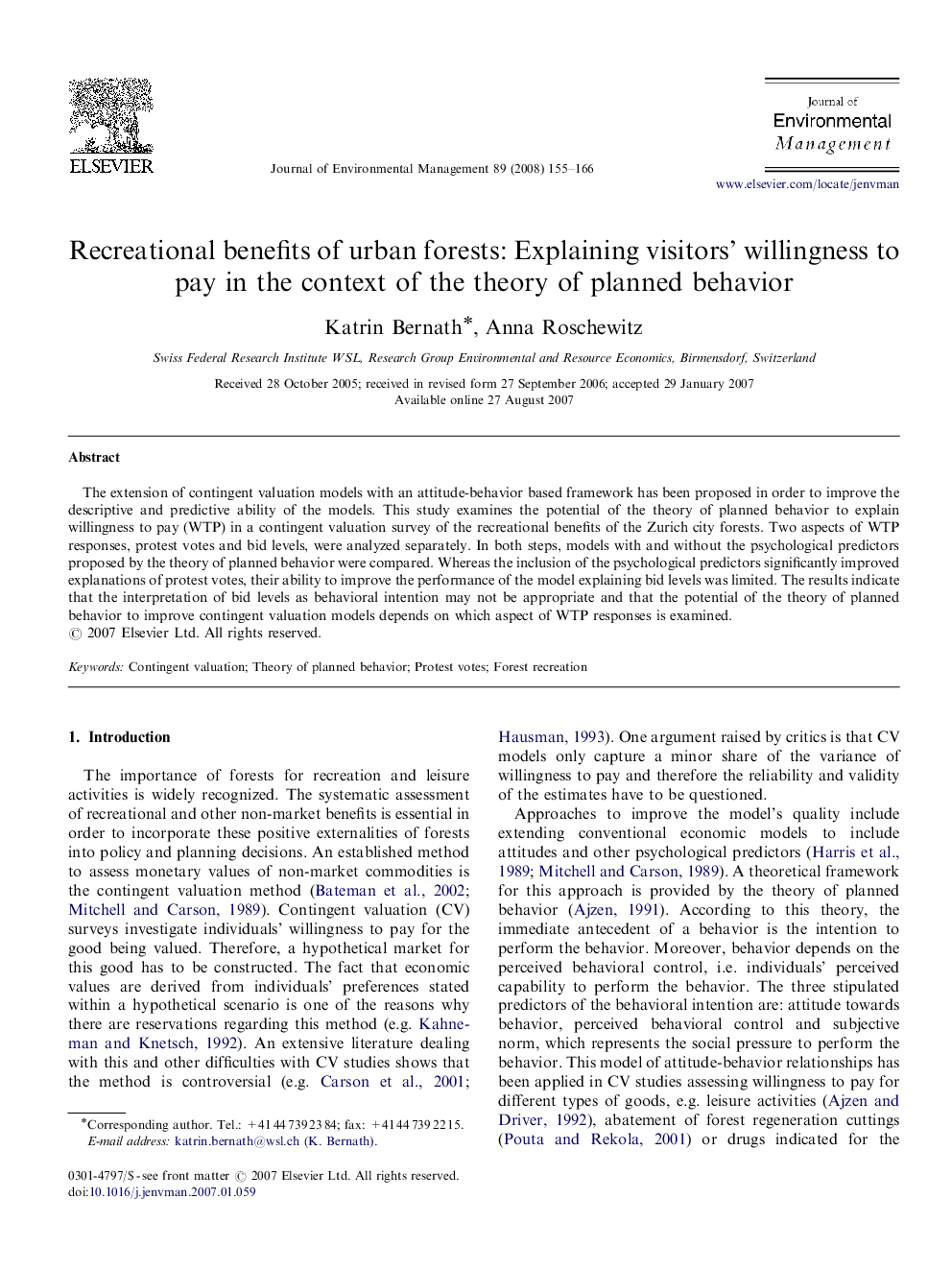| Article ID | Journal | Published Year | Pages | File Type |
|---|---|---|---|---|
| 1057449 | Journal of Environmental Management | 2008 | 12 Pages |
The extension of contingent valuation models with an attitude-behavior based framework has been proposed in order to improve the descriptive and predictive ability of the models. This study examines the potential of the theory of planned behavior to explain willingness to pay (WTP) in a contingent valuation survey of the recreational benefits of the Zurich city forests. Two aspects of WTP responses, protest votes and bid levels, were analyzed separately. In both steps, models with and without the psychological predictors proposed by the theory of planned behavior were compared. Whereas the inclusion of the psychological predictors significantly improved explanations of protest votes, their ability to improve the performance of the model explaining bid levels was limited. The results indicate that the interpretation of bid levels as behavioral intention may not be appropriate and that the potential of the theory of planned behavior to improve contingent valuation models depends on which aspect of WTP responses is examined.
